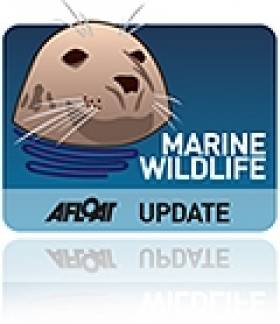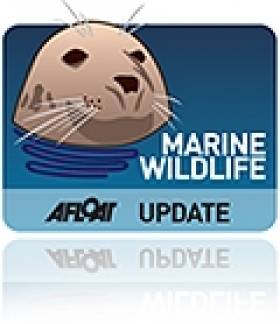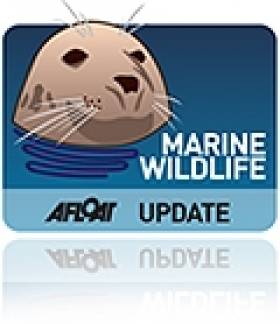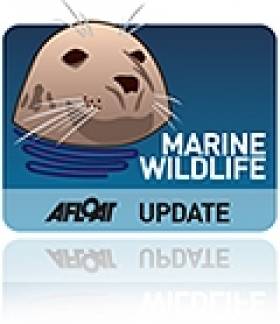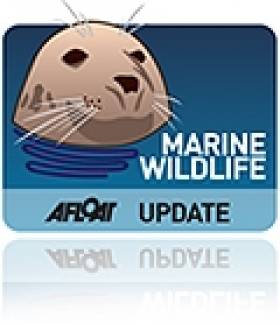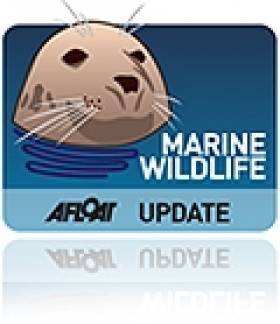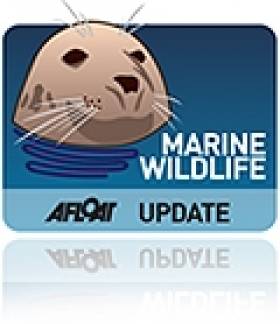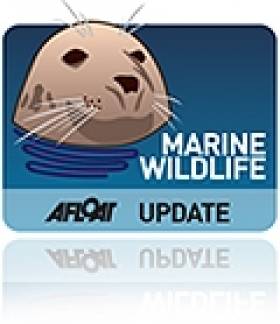Displaying items by tag: pilot whales
Pilot Whales Killed By Flatfish Stuck In Blowholes
#MarineWildlife - Two pilot whales suffocated after getting fish stuck in their blowholes – the first known record of such happenings since in over 400 years.
According to New Scientist, both whales met their end a year ago while their pod was hunting for flatfish in the waters between the UK and Belgium.
Examination of a carcass that washed up in the Netherlands six weeks after the pod was spotted revealed that its blowhole, necessary for breathing, was blocked by a common sole.
When the same thing was found in another dead pilot whale a few weeks later, researcher Lonneke IJsseldijk couldn't believe her eyes.
“When I got to the beach the second time, I saw this tail sticking out of the blowhole and I thought: ‘No way!’”
Flatfish are not the usual diet for deepwater cetaceans like the pilot whale, which normally feeds on cephalopods, but it's thought they may have had to adapt their diet in shallower seas.
It's not known what brought the pod so far from their usual North Atlantic haunts, though climate change may be a factor.
Unfortunately for these whales, the common sole is not so easily consumed, and their efforts to escape the whales may have caused their much larger predators' demise.
New Scientist has much more on the story HERE.
Pilot whales are regular visitors to Ireland's western shores, but strandings are not unusual either, with five whales dying after a mass stranding by a 13-string pod in Donegal in July 2014.
More recently, a trio of pilot whales were refloated after stranding in West Kerry this past August.
New Zealanders Rush To Aid 200 Whales In Mass Stranding
#MarineWildlife - Locals have been astounded by a mass stranding of up to 200 pilot whales in New Zealand.
According to the Irish Independent, volunteers were yesterday (13 February) fighting to save the whales that were still alive after beaching along a 7km stretch of sand at the north end of New Zealand's South Island.
The death toll was last put at around 25, and while some other were reportedly refloated, they were said to be "swimming in a confused fashion" as the Guardian reports.
Farewell Spit, where the stranding has occurred, is said to be a 'whale trap' for its numerous cases of cetacean strandings - bringing to mind the recent "unusually large number" of whale beachings in Scottish and Irish waters.
#MarineWildlife - Two of the stranded pilot whales at Falcarragh in Co Donegal have been refloated by locals against advice to leave them alone to die naturally.
According to RTÉ News, the public was warned away from the strand - now reported to be Drumnatinny beach - but a group met at first light this morning where they found four whales still alive in a pool of water and refloated two of them at high tide.
The locals said they watched the whales for several hours to make sure they did not strand themselves again.
But their actions still go against "internationally accepted" practice to leave whales that strand after being refloated to die in peace, as Irish Whale and Dolphin Group (IWDG) welfare officer Paul Kiernan explains.
Meanwhile, a visitor to the area has told the Belfast Telegraph of her horror over scenes on the beach where hundreds of onlookers gathered to see the beached whale pod.
Nicola Hinds from Bangor said some parents encouraged their children to interfere with the carcasses, while others photographed dying whales with camera phones.
She also criticised authorities for not handling the situation better, describing the scene as "an act of total wilful animal cruelty".
IWDG strandings officer Mick O'Connell has since written a column discussing the lessons to be learnt from this incident, calling for the State to establish official procedures for live strandings.
"It is time for State agencies to sit down and decide who has responsibility for live strandings in this country," he writes. "The relevant agency needs to have in place a coastal network of personnel trained in the latest 'best practice' guidelines for dealing with live strandings."
These guidelines, O'Connell adds, must be "backed up with appropriate authority to act as beachmaster when dealing with members of the public, the Gardaí and the Irish Coast Guard service."
Stranded Pilot Whales Being Left To Die Naturally
#MarineWildlife - More sad news from Ballyness Beach in Falcarragh this morning (8 July) as RTÉ News reports that all but one of the whales returned to the water after yesterday's mass beaching have stranded again and are being left to die.
Seven of the 13-strong pod have already been buried on the beach, with five more still alive but in no condition to be returned to deeper water, while one whale is unaccounted for.
#MarineWildlife - RTÉ News reports on the deaths of five pilot whales in a 13-strong pod that beached in Donegal this morning (Monday 7 July).
Despite valiant efforts by locals, four of the whales stranded Ballyness Beach in Falcarragh were already dead when the pod was discovered in distress.
Several whales also beached themselves again after a JCB was used to try to drag the surviving pod members out towards the sea. A fifth whale, a juvenile, died soon after.
It's hoped that the next high tide will help the remaining eight whales out of the shallows to deeper waters. RTÉ News has more on the story HERE.
The story brings sad memories of the more than 30 pilot whales lost in a mass stranding on Rutland Island some three-and-a-half years ago, and more recently the 16 pilot whales that died after beaching in eastern Scotland almost two years ago in similarly tragic circumstances.
Recent Dolphin, Whale Strandings 'Very Unusual' Says IWDG
#MarineWildlife - The Irish Whale and Dolphin Group (IWDG) has described as "very unusual" a mass stranding of common dolphins on Achill Island last week - which was followed this week by the remains of cetaceans washed up in Kerry.
At least eight common dolphins were found dead on Keel Beach, Keem Beach and Dookinella on the Co Mayo island at the end of January.
And The Irish Times reports that two pilot whales and an "otherwise healthy" dolphin were found washed up at Cuas Croom near Cahirciveen in the last few days.
Commenting on the former incident, IWDG stranding officer Mick O'Connell said: "While there are occasionally live strandings involving groups of dolphins, it is very unusual in this country to see this number of dead dolphins washed ashore over a 10km area."
Strandings of deceased dolphins have also been reported in Donegal, and the IWDG's Simon Berrow suggests that the recent severe weather experienced around Ireland's coast may be a factor.
Stranded Whale Dies in Western Scotland
A near-60ft long whale stranded on a beach in Scotland's Western Isles last week has died.
According to The Daily Telegraph, the whale was discovered on South Uist last Monday afternoon.
Despite the best efforts of rescue volunteers from British Divers Marine Life Rescue, the two-tonne creature - believed to be a sei or fin whale - could not be refloated.
Sadly, euthanasia was also ruled out as an option because of the side of the animal.
Death was pronounced on Tuesday, and a post-mortem will now be carried out to find out what may have caused the whale to beach itself.
The stranding comes after two serious incidents in Scotland earlier this year.
A previously reported on Afloat.ie, 25 pilot whales died after a mass stranding at the Kyle of Durness in July, while May saw a lucky escape for another pod of pilot whales at Loch Carman in South Uist.
This time last year 33 pilot whales from a group that almost stranded in Loch Carman were found dead on a beach in Donegal.
The Daily Telegraph reports that scientists are investigating the possibility of a link between the recent mass stranding of pilot whales in Scotland and the dumping of toxic waste into the sea.
Though no connection has ever been proved before, there are growing concerns that Polychlorinated Biphenyls, or PCBs, are contributing to their deaths.
PCBs, formerly used as coolants in industrial machinery, have been banned for many years - but it is feared they have spread throughout the marine food chain.
Experts are hoping to conduct toxicology tests on 16 of the 25 whales who died after beaching in the Scottish Highlands last month.
The results could also shed new light on the mass stranding of pilot whales in Scotland and Co Donegal a year ago.
The Daily Telegraph has more on the story HERE.
Pilot Whales Avoid Mass Stranding in Scotland
Rescuers reports that a pod of around 60 pilot whales at risk of beaching in shallow waters off Scotland's Western Isles appear to be out of danger.
According to The Guardian, the whale pod alarmed conservationists by swmming into Loch Carnan in a remote part of South Uist last Thursday.
The whales have since moved into open water heading south, but Dave Jarvis of British Divers Marine Life Rescue said they were not yet in the clear, as the rocky coastline hosts a number of inlets and bays that could present dangers to the pod.
Some of the whales have injuries to their heads which are believed to be caused by striking the loch's jagged shoreline.
The Guardian has more on the story HERE.


























